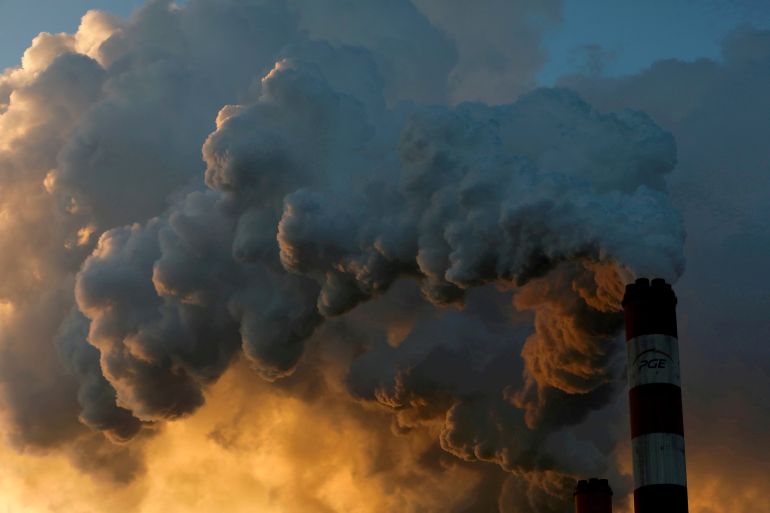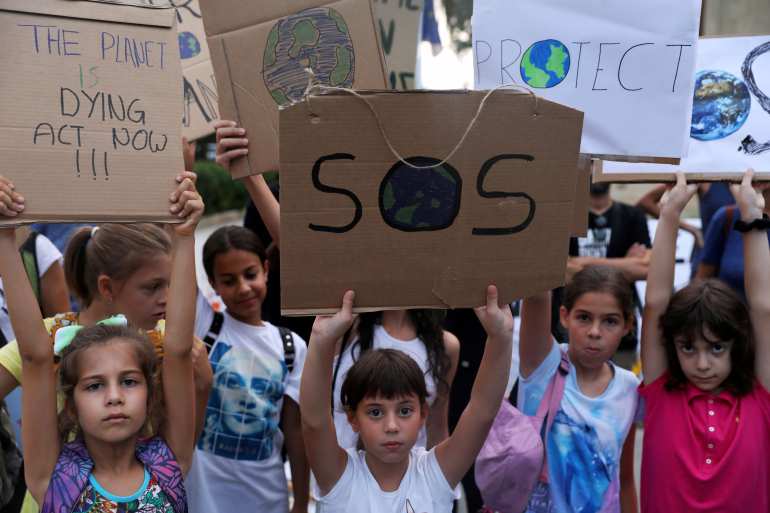‘Green’ investments must triple by 2030, report urges
With half of the globe’s economic growth dependent on nature, now is the time to galvanise political and business momentum to restore it, environmental experts say.

Investments in nature-based solutions must triple by 2030 and quadruple by 2050, a new report urges, warning of irreversible damage to economies, the planet and humanity if the status quo remains unchanged.
The State of Finance for Nature Report warns that public and private investment must triple to $350bn by 2030 from the current $133bn – or face a $4.1 trillion gap by 2050.
Keep reading
list of 4 itemsBiden orders climate risk strategy for US financial assets
Can governments give up using fossil fuels to save the climate?
After Musk Bitcoin U-turn, which coins are more climate friendly?
“It’s doable but it’s not being done,” Teresa Hartmann, one of the report’s co-authors and the climate and nature lead at the World Economic Forum, told Al Jazeera.
“If we take existing financial flows, recovery packages, subsidies, tax revenues – and we redirect those, this is actually a very achievable goal.”
The State of Finance for Nature Report is produced by the United Nations Environment Programme (UNEP), World Economic Forum (WEF), Economics of Land Degradation Initiative and Vivid Economics and is co-funded by the governments of Germany and Luxembourg.
The authors are urging political leaders and businesses to seize the opportunity presented by the coronavirus pandemic and direct unprecedented levels of fiscal stimulus towards building back “greener”.
“There’s huge spending happening at the moment on recovery, but it’s not being spent in the right places. We have a real opportunity to build back better at the moment and we’re not,” Hartmann said.
Of the total $14.6 trillion in fiscal spending governments announced, only 2.5 percent was allocated for green initiatives, the report found, and about 14 to 15 percent of the spending was actually harmful to nature.
Half of the world’s gross domestic product (GDP) is dependent on nature, and nature-reliant sectors such as agriculture, food and beverages and construction generate an average of $8 trillion per year in gross value added, the authors say.
Public financing post-COVID must be aligned with objectives outlined in the 2015 Paris Agreement on climate and the anticipated Kunming agreement on biodiversity, Ivo Mulder, UNEP’s head of climate finance, told Al Jazeera.
The private sector has a large role to play as well.
“Businesses and financiers have an enormous opportunity to scale up investment in sustainable supply chains, forest carbon and other nature-climate solutions, but this requires risk-taking from both public and private actors,” Mulder said.
One way of incentivising the private sector to go “green” is to attach climate provisions to recovery packages.
The multibillion-dollar bailout of Dutch airliner KLM by the Dutch government had such an attached condition – requiring the airline to slash emissions by half by 2030.

“There comes a tipping point where if we don’t do this by 2030, it’s not like we can just do it by 2040,” Hartmann said. “If we can spend $2 trillion a year on military security, then we should absolutely be able to spend $350bn on planetary safety.”
It’s fairly easy to nudge companies into spending where you want them to through the right fiscal incentives, Hartmann said, giving the example of a government-imposed tariff barrier that incentivises the private sector to start doing business in a more sustainable way.
Earlier this year, Switzerland signed a bilateral trade agreement with Indonesia – the world’s largest producer and exporter of palm oil – to reduce import tariffs on palm oil on the condition that the oil is produced sustainably.
Such incentives can help bridge the gap between public-private spending and bring the world closer to funding greener initiatives.
“What we’re saying is, if you don’t invest in nature, you’re going to threaten food security, water security and human livelihoods,” Hartmann said. “It’s essentially human life that’s on the line.”